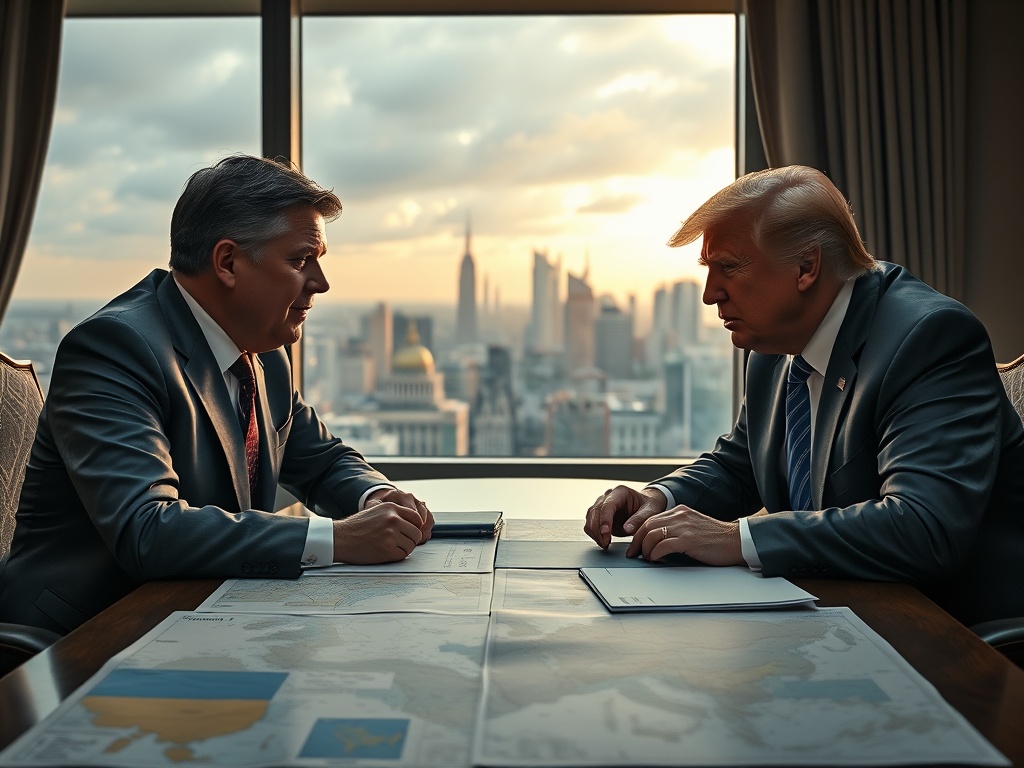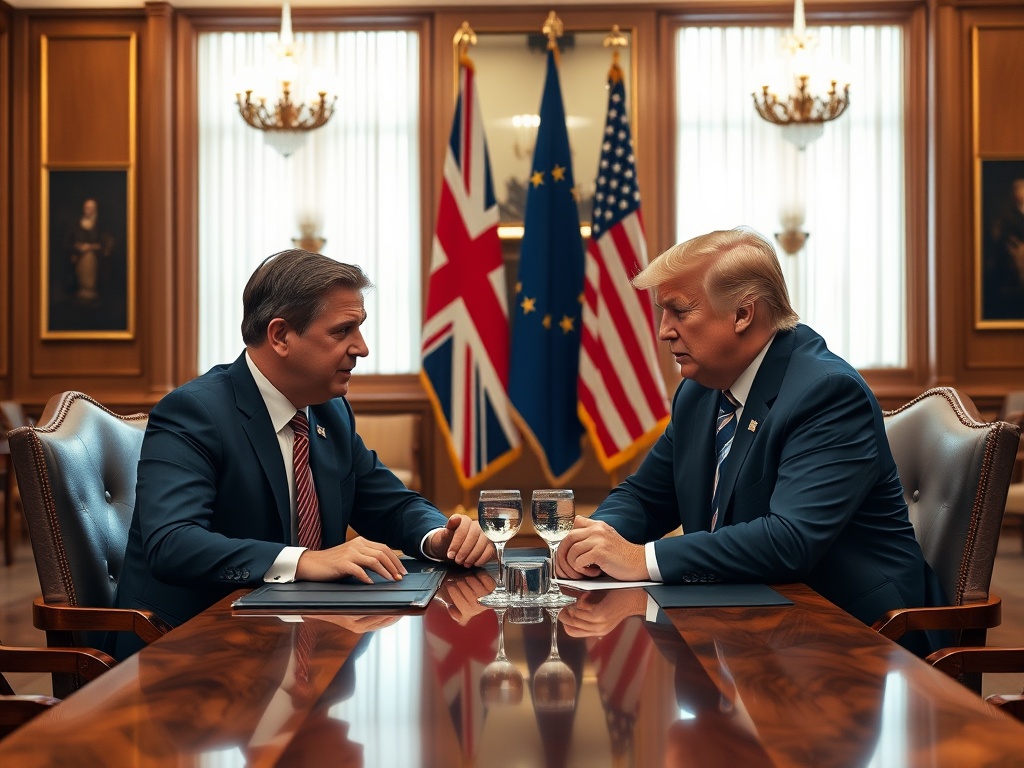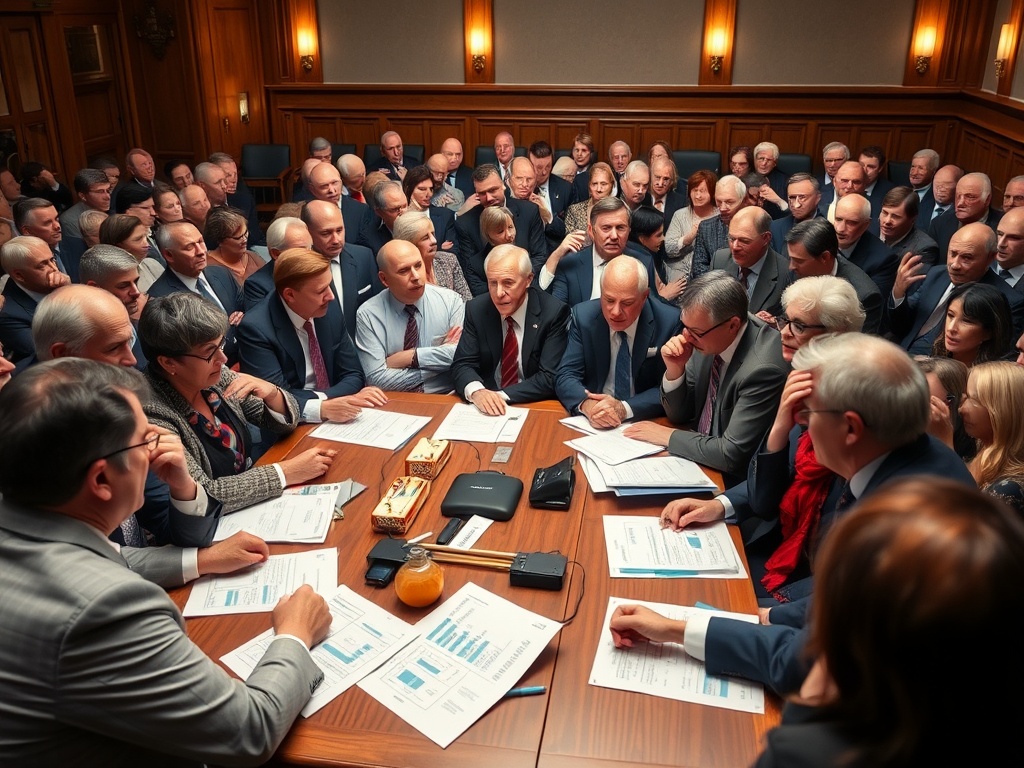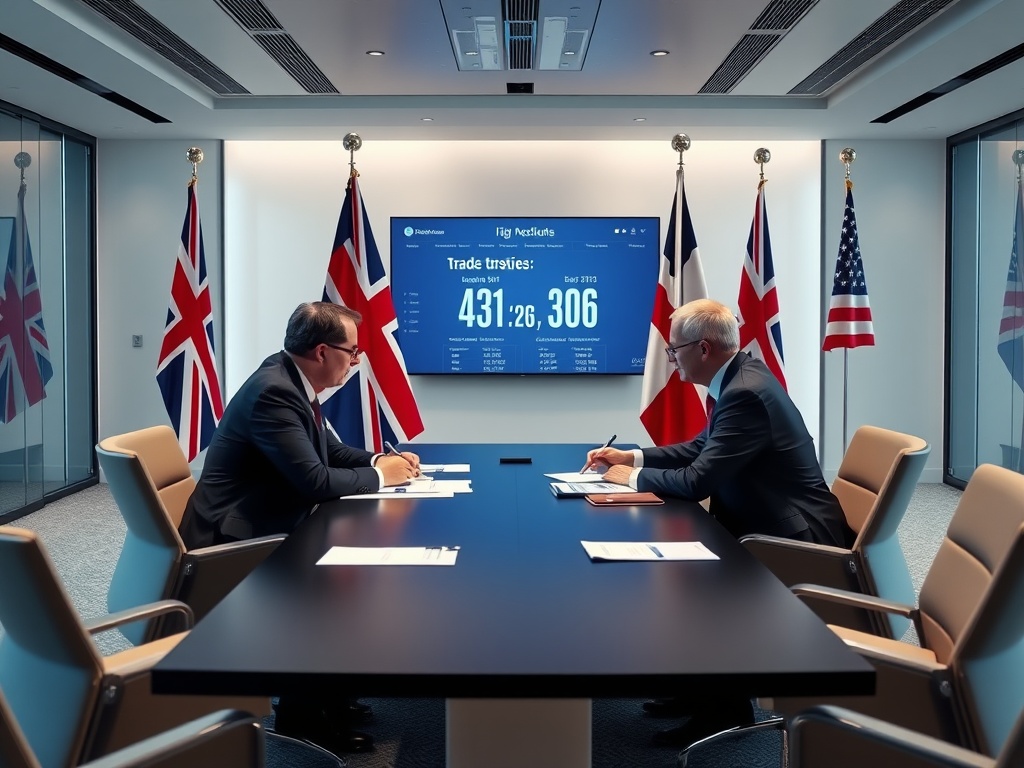Starmer’s Diplomatic Balancing Act with Trump

Next week, Sir Keir Starmer will engage in what could be the most pivotal meeting of his tenure as Prime Minister, as he sits down with former President Donald Trump in Washington, D.C. The stakes are incredibly high, revolving around the ongoing conflict in Ukraine and, by extension, the broader security landscape of Europe.
Already, Starmer’s ambition to serve as a diplomatic “bridge” between the U.S. and Europe has faced challenges. He was compelled to publicly counter Trump’s description of Ukrainian President Volodymyr Zelensky as a “dictator.” This situation places Starmer in a precarious position, requiring him to refute Trump’s use of Kremlin narratives while simultaneously persuading the President to acknowledge the needs of both Ukraine and Europe as he seeks to facilitate peace talks with Vladimir Putin.
The timing of this meeting is particularly crucial, as discussions between Trump and Putin could occur shortly after Starmer’s visit. This sequence of events, alongside the earlier meeting with French President Emmanuel Macron, could significantly influence whether the interests of Ukraine and Europe are sidelined in any potential peace negotiations.
In light of these pressing issues, Starmer dedicated four hours last week to consult with defense leaders regarding the next steps for Ukraine and the anticipated outcomes from the strategic defense review, as reported by officials. Early in the coming week, he plans to conduct high-level discussions with National Security Adviser Jonathan Powell and Foreign Secretary David Lammy in Whitehall to formulate a comprehensive strategy for the Trump summit.
The UK government’s overarching strategy for engaging with Trump focuses on “de-escalating” tensions by introducing a sense of calm into the discourse, according to a Whitehall insider. However, there is also an effort to demonstrate that the UK “understands” Trump’s views on European defense expenditures and self-reliance, avoiding reactive responses to every statement the President makes.
In his discussions with Trump, Starmer is likely to emphasize that if the UK is to play a role in “policing the peace” in Ukraine—potentially involving British troops on the ground, as suggested by the Prime Minister—it deserves a voice in the negotiations leading to such an arrangement.
The UK government remains confident that the United States continues to support Ukraine. Marco Rubio has briefed the UK, France, Germany, and Italy on the U.S.-Russia talks in Saudi Arabia, clarifying that these were merely “talks about talks,” with no agreements reached. Additionally, the G7 foreign ministers have issued a statement advocating for a “durable peace and a strong and prosperous Ukraine.”
However, Trump’s recent remarks attributing the blame for the war to Ukraine have caused significant concern among allies. Some senior figures within Labour are urging Starmer to display his political strength, suggesting that doing so could help improve his dismal personal poll ratings. A recent YouGov poll indicated that 48% of Britons believe it is more important for the government to support Ukraine than to maintain amicable relations with the U.S., compared to only 20% who prioritize the latter.
Some senior Labour members have likened this situation to a Love Actually moment, referencing the 2003 film where the Prime Minister, portrayed by Hugh Grant, confronts the U.S. President over their deteriorating relationship, asserting his intention to be “much stronger” in the face of American “bullying.” While the idea of Starmer delivering a similar message may seem far-fetched, there is a belief that he has the opportunity to advocate for both British and Ukrainian interests while maintaining a diplomatic rapport with Trump.
- A minister remarked, “If Keir is perceived as strong and advocating for UK security, that is beneficial.” They emphasized that this is the government’s primary duty.
- Another minister noted that Starmer could emerge as a leading figure for Europe during this crisis: “Who else has a stable majority and a long term left in office? This is a moment for decisive leadership.”
A senior Labour MP asserted that Starmer was “absolutely right” to challenge Trump’s “abhorrent rhetoric” regarding Zelensky this week. They stated, “The UK has consistently supported Ukraine, and to concede even a little now would be a profound betrayal of the Ukrainian people.” They added that the priority should be unwavering support for Ukraine against Russian aggression, rather than worrying about relations with Trump.
Some political analysts believe that taking a firm stance on Ukrainian issues could yield political dividends for Starmer. A minister who called for Starmer to channel the Love Actually spirit suggested that standing firm on British interests might help fend off challenges from Nigel Farage’s Reform Party, which has criticized financial support to Ukraine for months. They posited, “While Reform’s supporters may revel in Trump’s stances, many others might not share that view.” They added that part of Reform’s appeal lies in nationalism, and following Trump while risking European security could undermine that foundation.
A Labour insider remarked that unwavering support for Ukraine is “massively popular” across the political spectrum, representing “the right thing to do” and aligning with the patriotic sentiments of voters concerned about national security. This could create valuable “clear water with Trump,” benefiting Starmer politically.
Some pollsters believe this meeting could enhance Starmer’s public image. Luke Tryl, director of the More In Common think-tank, noted that the Washington talks provide “an opportunity for him to appear strong and pragmatic.” He stated, “Britons overwhelmingly support Ukraine; we don’t experience the same polarization seen elsewhere, and the softer stance from Reform seems disconnected from public sentiment.” Tryl added that while voters may not expect a Love Actually moment, they want assurances that Ukraine’s interests will not be compromised.
However, others caution that while Starmer may gain visibility, it is the pressing domestic issues, particularly the economy, that will ultimately dictate his popularity. Anthony Wells, head of European political and social research at YouGov UK, explained, “When asked whether he should confront Trump, people often provide a morally right answer.” Yet, the public also expresses a desire for a strong UK-U.S. relationship. He concluded that while a strong stand might boost Starmer’s short-term ratings, any adverse economic repercussions might overshadow those gains.
Veteran diplomats are advising Starmer to address disagreements with Trump discreetly rather than publicly. A former Conservative foreign secretary suggested that airing tensions in public could diminish the UK’s leverage. An EU source echoed this sentiment, supporting Starmer’s role as a “bridge” to the U.S.: “Taking him on publicly may not be wise; we need interlocutors, and the Prime Minister’s trip to Washington is crucial.”
Starmer’s potential role as a diplomatic bridge between the U.S. and Europe represents a significant opportunity. One European diplomatic source stated, “We believe it’s beneficial for Starmer to meet Trump and articulate the European perspective, especially regarding Ukraine.”
British ministers are also advocating for increased defense spending among European allies, aligning with Trump’s perspective, even as public sentiment in certain countries remains skeptical about military support for Kyiv. During a recent meeting with European counterparts, Defence Secretary John Healey reportedly emphasized, “Go back to your countries and engage your publics about the necessity of increased defense spending.”
However, skepticism persists. A former Tory advisor expressed doubt about Starmer’s effectiveness as a bridge, stating, “Trump is not interested in building bridges, and the EU has no obligation to support issues that aren’t formalized in legal agreements.” Another EU source suggested that Starmer may not be the ideal conduit to Trump, implying that leaders like Italy’s Giorgia Meloni might be more suitable for that role.
A Labour MP predicted that at some point, Trump would likely criticize the UK government, as he did with Theresa May during his first presidency. The MP observed, “We will need to weather some blows.” They noted that Starmer’s composed character could serve him well in interactions with the unpredictable President. “Keir’s temperament is advantageous; he won’t overreact.”
The backbencher emphasized that Labour must concentrate on “managing the situation” with Trump, ensuring that they maintain their own agenda. A left-leaning Labour MP remarked that Starmer’s approach with Trump could be a defining moment for his leadership, but expressed skepticism about the likelihood of achieving more than a mere piece of paper from the encounter. They stated, “Our relationship with the U.S. has fundamentally shifted. If No. 10 believes they can secure substantial commitments from Trump, they may be mistaken.”
Ultimately, the efficacy of Starmer’s meeting with Trump will hinge not just on their discussions but also on the subsequent interactions between Trump and Putin, which will determine the success or failure of Starmer’s diplomatic endeavors.




